Post Office
by Charles Bukowski
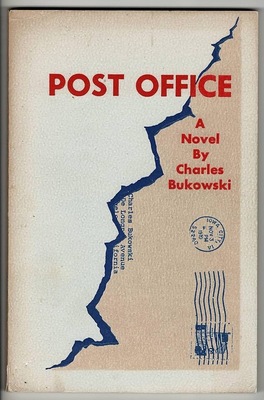
That would be a good fiction book for a beginner reader. It's short, and the story changes quickly to keep you engaged. I enjoyed reading it. It's the first published book by Charles Bukowski, and apparently, he is a popular writer now.
The Knockout Artist
by Harry Crews

I enjoyed the book. The novel was engaging and surprising, keeping my interest high throughout the book. I'd love to discuss it with somebody.
Abundance
by Ezra Klein and Derek Thompson
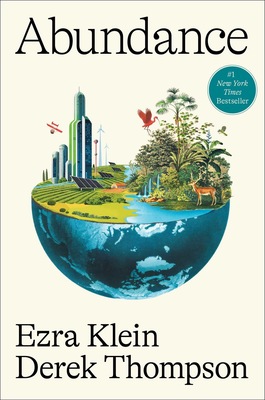
That’s an insightful book. The authors explain why the US experiences its current problems. Problems like slow economic growth, difficulty building projects, housing, the inability of the government to govern, innovate, and scale innovation.
The book doesn't offer many solutions as the problems are multifaceted. However, I don’t think it should; the first step towards the solution is to accept that it is a problem. My impression is that we are not there yet.
While the book talks about the US exclusively, I found it overlaps with Australia quite a lot since our economies and cultures are similar. It gave me new insights into the housing crisis in Australia.
I like how short this book is and to the point. That makes it easy to read.
Punished by Rewards: The Trouble with Gold Stars, Incentive Plans, A's, Praise and Other Bribes
by Alfie Kohn
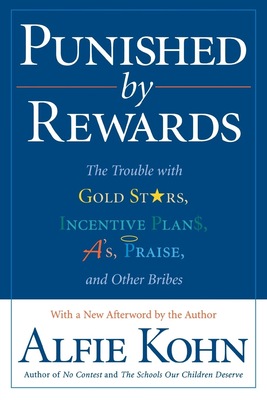
The book argues against using rewards, punishment, and praise. The author argues well, and the argument aligns with my experience. People use rewards as a manipulation tactic to make others obedient. Rewards/praise don't work to make any meaningful change.
The key reasons against rewards (apart from that they don't work long-term):
- Rewards punish
- Rewards rupture relationships
- Rewards ignore reasons
- Rewards discourage risk-taking
- Rewards undermine interest
In part three, the book suggests the alternatives. That was the most interesting part for me.
The book is well argued but poorly structured. The book is very repetitive and could be half as short. That would make it only better. If you still think that rewards and praise are a good thing, then this book is a must.
The Automatic Customer: Creating a Subscription Business in Any Industry
by John Warrillow
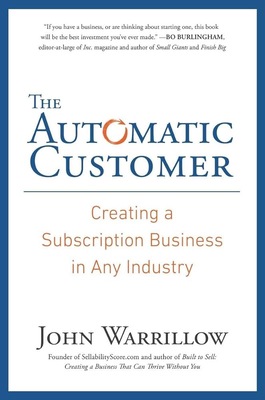
The books gives a decent summary and overview of subscription models. The author gives plenty of examples and analysis. If you are looking for a structured introduction into subscription models that's a good book for it. Others probably won't find it very memorable.
Crucial Conversations: Tools for Talking When Stakes Are High
by Al Switzler, Joseph Grenny, and Ron McMillan

I read this book 7 years ago. The book has some good points and methods, and teaches you to see new perspective in conversations with high stakes and emotions. I found it quite daunting to listen. I think the book didn't use enough practical examples, or the writing style just didn't resonate with me.
It's Not Luck
by E M Goldratt
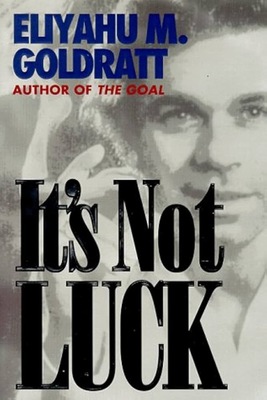
This is a continuation of The Goal book but focused on how to find solutions and resolve conflicts in business or life. It's a novel and I found it easy to follow.
The book demonstrates the technique however it does not teach it to you. That's a big wasted opportunity because that's the most useful knowledge you can take out of it. Luckily people wrote about it on wikipedia. If you decide to read the book, it's a must.
The technique in the book reminded me of 5 why's techniques, but with more structure and guidance. I like that.
The Goal: A Process of Ongoing Improvement
by E M Goldratt. and J Cox
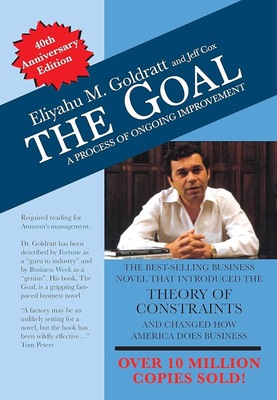
The book is an easy read and a good introduction to Theory of Constraints. It reminded me of The Phoenix Project. I think some relationship drama was a bit excessive but it increased the stakes and made characters more alive. I can recommend.
100 things every designer needs to know about people
by Susan M.Weinschenk
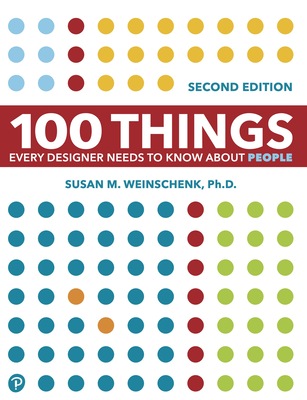
I've read this book 13 years ago I remember it was fun but I didn't take much out of it. Since I'm currently exploring usability testing, this book came up again and I thought it would be a good idea to reread it.
I can say I feel exactly the same, the book is extremely surface level. 100 things is a big list and you have to compromise quality a lot. As a result the book is more fun than useful. It tries to be based on research, but at best it cites a single research paper per section and never talks about the quality of that research. I find it hard and dangerous to accept everything as a fact as there is a high chance it's not conclusive or just wrong.
If you are new to human psychology and behavioural science this is a good book to get started and get excited. Just see it as fun rather than practical.
Don't make me think
by Steve Krug
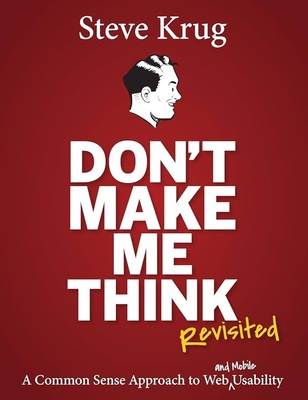
This is an old book. The content is a bit dated and the message is still relevant. I'd say it's only an introduction to usability testing. I agree that the software industry still doesn't do enough usability testing and there is a lot to benefit. I think the book doesn't talk enough (if at all) about balancing competing priorities in design and work. It is much harder than deciding on button shape.
The book is light and short, and I think is suitable for non-technical people.
Escaping the Build Trap
by Melissa Perri
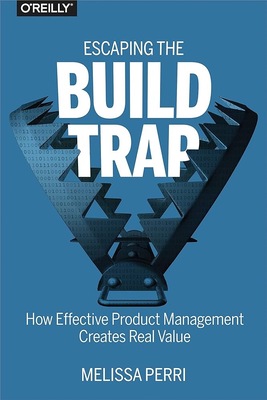
This book is a great introduction to product management. It touches on many aspects and is quite comprehensive. It reminds me of Modern Software Engineering book but for a product. My main takeaway: talk to your customers. I see how many company issues are coming from lack of information. All employees want clear company direction so they know what to prioritise, but the CEO can set the vision without good information, hence flaky direction. Product managers can only prove or disprove ideas with customers and other stakeholders. I like how the book describes the role: product managers are not who come up with ideas, but who stop bad ideas.
I love how the book is written and structured. It's easy to follow, has plenty of examples and the content of the book is explained with one fictional example through the book.
While I feel the book comes from experience, the book itself is only partially practical. It's a good overview. While a high level mindset is important, it's a different task to apply it in practice. There are many cultural, people, and organisational challenges that prevent good product management.
I highly recommend this book to all product managers, senior leadership and entrepreneurs. Like the book highlights, product culture spans to the whole organisation.
The 7 Habits of Highly Effective People
by Stephen R.Covey
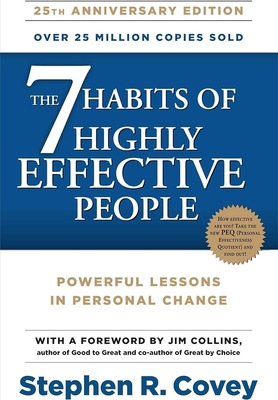
This was one of the first self-help books I've read, which was about 15 years ago. This month I decided to reread it, as I couldn't remember anything from it.
The book touches on many main points and that's why it's great. However most of the book is common sense. It's hard to disagree or be life changing.
The interesting part for me was to see development stages Dependence, Independence and Interdependence which are the same in Intimate Communion book.
I like the sequential model Stephen presents, however the delivery is bad. 7 habits are not habits at all, more like principles or groups. The book mentions a lot and yet it's still far from being comprehensive or foundational.
I'd recommend this book to people who are new to self-development. You'll feel like you've discovered super power, but most likely little will change for you. That's expected, use that energy to read more practical books next.
P.S. I couldn't find the audiobook of the text. All I could find is some author's commentary. Keep in mind the book is different.
Nineteen Eighty-Four (aka 1984)
by George Orwell
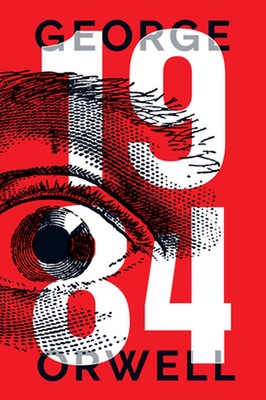
I've read this book last year, but forgot to mention on the blog. It's a good classic along with Animal Farm.
I also watched movie based on the book. The book is richer and more complete, but one thing that I particularly enjoyed in the movie is hearing "new speak" as they spoke it.
The Fund
by Rob Copeland
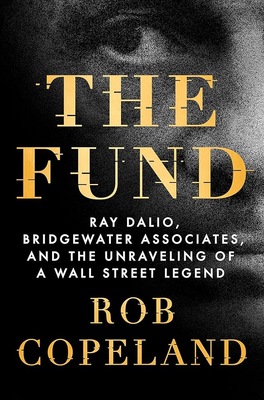
Two months ago I read the Principles book, which resonated with me. I was eager to find more details about their processes, but surprisingly there was very little public information on the internet. I got very lucky with timing because this year The Fund book was released, which shows a different side of the same story. It's good investigative journalism and I wish all books came with alternative perspectives.
The book is full of office politics, competition for power, people's insecurities, lies, abuse and domination. I think it's a great candidate for a movie.
The Fund book helped me to better understand the background and filter information from the Principles book. I still think it's a good book, but now I'd say only half of it is relevant. It's a shame that good ideas are poorly applied and associated with bad characters.
The book felt unnecessary long at times and could benefit from better writing and structure. But it was enough for me to enjoy.
The Fund book is a must read if you read Principles book or follow Ray Dalio's work.
Stolen Focus
by Johann Hari
Why you can't pay attention and how to think deeply again.
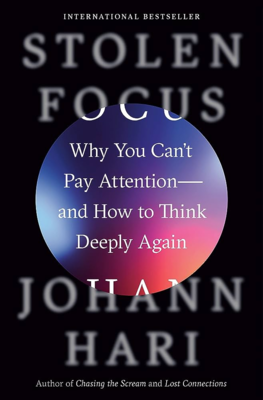
Few friends recommended this book. I enjoyed it as well. The author talks about the factors that reduce our attention and focus. I like that the book takes one step back and looks at a bigger picture beyond what is commonly recognised like social media. That includes low rates of sustained reading, mind-wandering, stress, diet, pollution, over protectiveness of children.
I like that the author highlights that we shouldn't blame all failings to ourselves and consider the overall environment. It is often working against you and it's very difficult to succeed in such conditions.
The book is well structured and easy to follow. It could be shorter without personal stories, but overall it's very enjoyable to read. It goes well as an audiobook as well. I'd recommend it to everybody for general awareness.
How to start thinking on monday and not finish on tuesday
by Anton Petryakov

This book is a good compilation and summary of many core concepts essential to living in the modern world from other books. I like how consumable the author makes the content. That's the best part.
On the negative side, some of the explanations are wrong or misleading. In short, enjoy the summary of other books, and be wary and ignore ideas coming from the author himself.
Author could have spent more time on research. I'm in a rare position to say that. The author references 11 books. 1 of them is his previous book, and I've read 5 out of the remaining 10. It's only with deeper knowledge I was able to spot some of the weak arguments and wrong conclusions.
Despite a quarter of the book being wrong, I would still recommend this book to everybody. The value of the remaining 3/4 is worth it, since you probably won't read the originals.
Dopamine Nation
by Anna Lembke
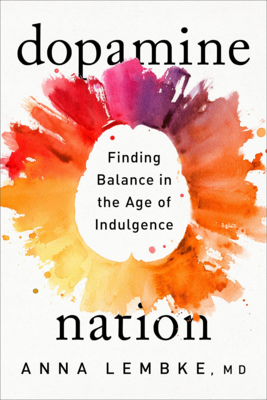
This is quite an interesting book which I found easy to consume. It talks about pleasure and pain. Think of it as addictions and bad habits. I think this book complements Atomic Habits book well. Dopamine Nation focuses more on bad habits.
Big part of the book focuses on the effects of pain on our happiness. It could be summarised as Hormesis. A little stress and pain is favourable for our body. Examples of painful stimuli include cold, heat, gravitational changes, radiation, food restriction, and exercise. Surprisingly the author also includes radical honesty to that list, which she dedicates a whole chapter to.
The book is well structured and has many stories. If you are into habit building or want to improve your happiness, I would recommend this book.
488 Rules for Life
by Kitty Flanagan
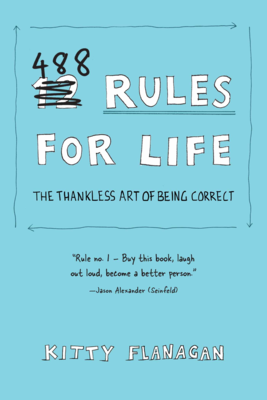
That's a half funny and half option book with a few useful bits in between. I particularly enjoyed the audiobook narration by the author. I think the rules book genre has a big potential if the rules are useful. So if you know a similar book, send it my way.
This book would be a good gift to anybody or a good fit for a beach book.
Powerful
by Patty McCord
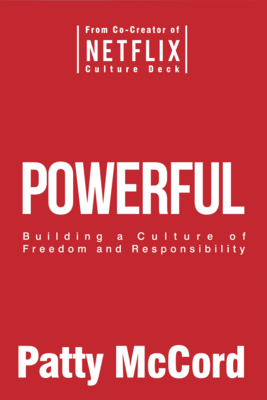
Powerful is a fairly short book (4 hours) which is a longer version of Culture Deck slides. The book is easy to read and very well structured.
Patty describes her work at Netflix as a head of HR. She explains why she made certain choices. Patty provides good reasoning and practical advice. I mostly agree with her points. Most companies, in my experience, are suffering from excessive positivity and family vibes which hurt productivity. Instead of firing underperformers, they are transferred to another team. I'm yet to see a company which has a culture of timely constructive feedback. That's some of the points that Patty touches on.
However it's important to remember the context surrounding her experience. Netflix is a public company which grew at a stunning rate. The challenges they faced are quite different from what any small or large company would. So her advice should be taken with caution.
I'd recommend this book to managers and higher (like cofounders and HR). Just like Nine Lies About Work book, it will help you question industry status quo and think of alternatives.
Running the Room
by Tom Bennett
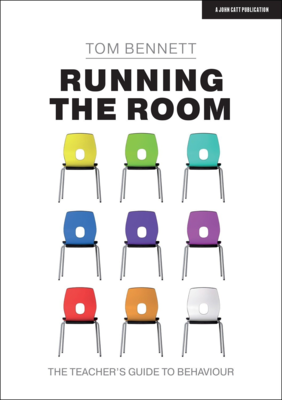
This book is about the classroom but I found half of it is relevant for my daily work when dealing with adults. The main idea is that we need to teach good behaviour explicitly. I fully agree with the author. Social and work rules and norms are usually implicit and unclear. In multicultural society it's even harder as people dilute the norms with their cultural flavour.
The book reminded me of The Art of Gathering. Especially the part of setting explicit rules, protecting the group from bad behaviour and utilising your power.
Some chapters touch on habits buliding. They only cover the surface, and if you want to go deeper, have a look at Atomic Habits book.
I found the book very repetitive with poorly set emphasis in text. A bit disappointing to see that from a teacher. I guess teaching is not writing.
Overall it's a good read and worth it if you want to understand and deal with people's behaviour, good or bad.
The High 5 Habit
by Mel Robbins
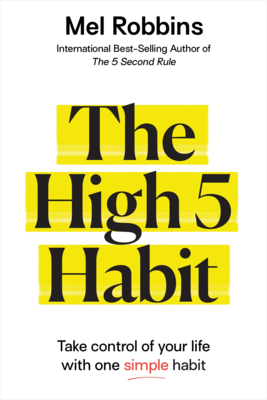
This is a very easy to consume book. It's inspirational and story driven. The book talks about Growth mindset without naming it like that. It encourages to love yourself and put yourself first. It's a simple but very enabling idea.
There is little practical advice to make it somewhat useful. There are few tips on building habits, but for a deeper understanding I'd recommend Atomic Habits book. For the deeper dive into mindsets have a look at Mindset book.
I'd recommend this book if you'd like more confidence, motivation and inspiration. Mel narrates the audiobook herself. She definitely brings a lot of energy and emotions into it. I like this trend when authors narrate their own books.
A More Beautiful Question
by Warren Berger
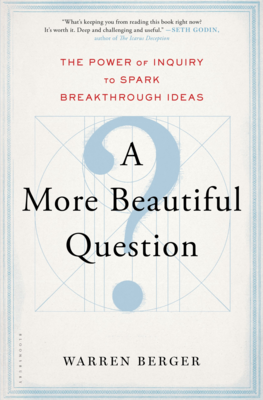
It's an interesting book. I like the premise and don't like the delivery. The main suggestion is to start questioning the world as a way to creative thinking. The author doesn't offer much himself, but has a couple of good references to other people's work.
The majority of the book is a collection of cherry picked success stories from history. It's a typical over simplification of reality twisted to fit the book's narative. It's fun and inspiring to read but has no practical value.
How Charts Lie
by Alberto Cairo
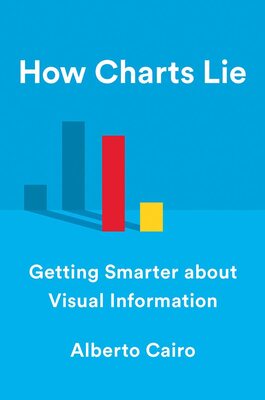
This is an insightful read. I've built many charts and graphs myself in the past and rate my chart skills above a majority. However I still learned something new.
I have two highlights. Any chart is a simplification of reality, and it reveals as much as it hides. You can present any information in both positive and negative light on the chart. Which leads to the second highlight: a chart shows only what it shows and therefore, we must strive not to read too much into it.
The book is short and easy to read as it has a lot of graphs to look at. I'd recommend it to everybody as it gives basic graphical literacy or graphicacy how the author puts it.
The Art of War
by Sun Tzu
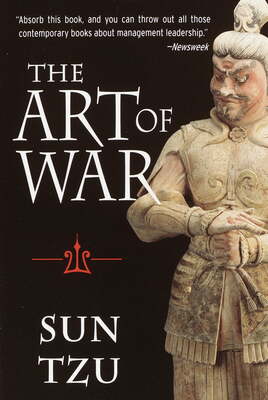
I found this old book quite interesting as it dives deep into combat, human nature and social structure. There are multiple additions, extensions and explanations which I didn't touch, but might in the future. Personally I'm interested in the ideas, but since it's so old historic knowledge is required for the full understanding.
Models: Attract Women Through Honesty
by Mark Manson
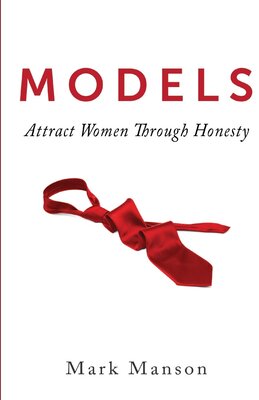
This is the first book by Mark Manson which gave him an initial boost of popularity. You probably know Mark by his second book "The Subtle Art of Not Giving a Fuck".
The book tells how to attract women. To summarise the book: be good looking, smart, interesting, communicate well, confident, flirtatious and more. Book's advice is to be everything, but I bet you already knew that. So yeah, not that useful. The author provides some practical advice but it's quite shallow.
Models book presents good intentions on how to be an attractive partner. I like that the book critiques the famous pickup artist culture popularised by "The Game" book. However the book is still about pickup games but only with a slightly different mindset.
I found the book useful to read about other dating experiences and like few ideas.
In short the book had great potential but the author failed to execute on it leaving it as an average read.
How to live
by Derek Sivers
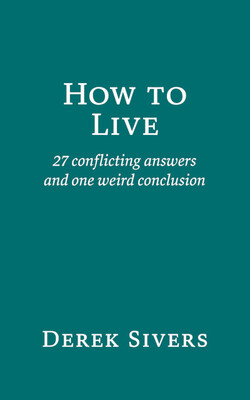
This is a short book based on author's opinon, which mostly aligns with mine. I found that many principles from the books are based on Stoicism philosophy.
The book contradicts itself few times, but I still had a good time listening to it. I found it a bit inspirational to be reminded of those things.
Staff Engineer
by Will Larson
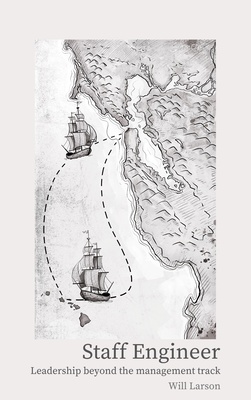
Software engineer titles are a mess. Senior Software Engineer title got deflated over the years. It's not uncommon to see people with 3 years of experience with it. As a result technical career path becomes problematic as there is none. As an obvious solution new titles started appearing. Company started to create their own titles, which doesn't tranfer or communicate much outside the company. The most common title above the Senior in Australia is Lead Developer, but that's pretty much it.
Recently I've discovered a new title taxonomy called Staff Engineering. It is still loosely defined. This book is based on aggregation of opinions and defines the next technical levels above Senior.
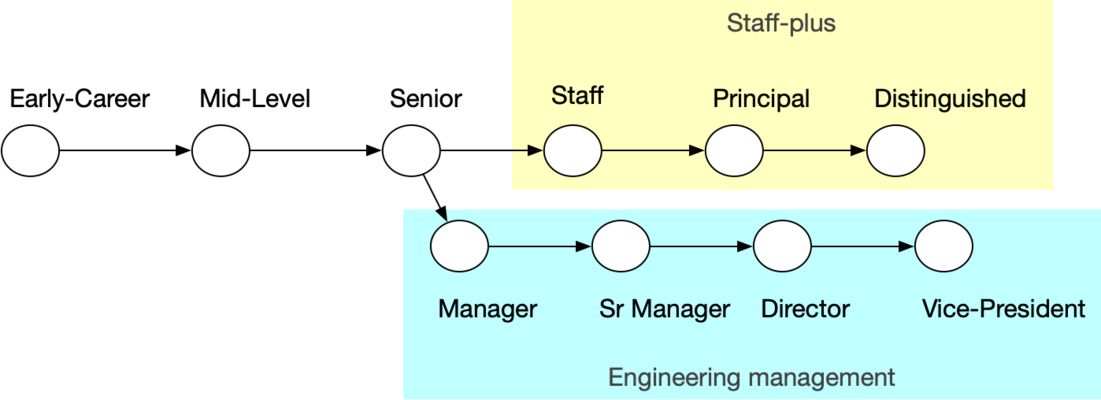
The book has lower quality than I'd expect from books. It feels like a collection of blog posts. However it's still useful to read to get the authors opinion.
The Art of Gathering
by Priya Parker
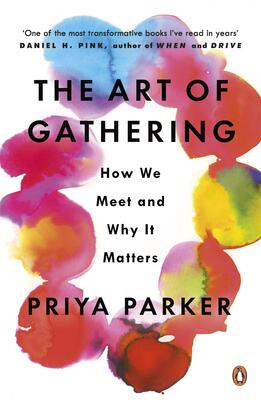
You probably wouldn't think much what there is to a gathering. This book goes into details what makes gatherings good or bad. The book is not prescriptive and gives a good high level guide to different aspects.
I think everybody could benefit from this book, but probably not many people will find it interesting. I've read this book twice in a row, as the second round was for the book club.
The Alphabet of Emotions (Rus) / Азбука Эмоций
by Natalia Kedrova
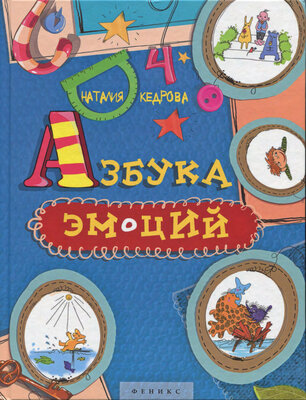
I had fun reading this small Russian book. It talks about the most common emotions and how to interpret them.
The book has colorful design and illustrations, which made me think that most books are visually boring.
I would recommend it to everybody if you can read Russian.
A Guide to the Good Life: The Ancient Art of Stoic Joy
by William B. Irvine
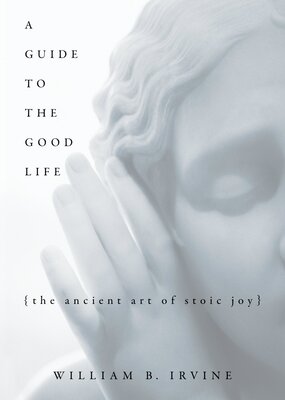
This book is my first introduction to Stoicism. I would say the book is well written, but I didn't like the audiobook's narrator on Audible. It was too monotone for me.
Stoicism itself is an interesting philosophy and I would recommend you to look into it if you still haven't.
Nine Lies About Work: A Freethinking Leader’s Guide to the Real World
by Marcus Buckingha, Mashley Goodall
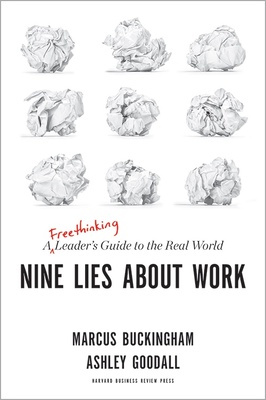
That's a pretty interesting book about debunking the status quo. I generally agree with the author that the “lies” as the status quo make little sense. However, I’m not fully sold yet that the “truths” is the right solution. I felt the arguments were very weak at times. Also, the author gives weird definitions to the problems so later he can present his solution, which are only relevant in such setup.
Nevertheless, I enjoyed the argument as it got me thinking. The book is easy to read. I would recommend it if you want to challenge your beliefs with the new facts.
Everyone Communicates, Few Connect
by John C. Maxwell
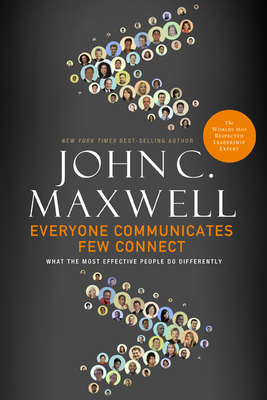
I listened to this audiobook and I should say it would be better to read it instead. The book is very well structured. The author provides a good breakdown of how to connect with people when communicatating.
The book doesn't offer anything groundbreaking: be valuable to others, puts others' interestes first, be interesting, be inspiring, speak clearly, be authentic. I feel the advice is too generic and theoretical. I might read it in the future though.
Do the work
by Steven Pressfield
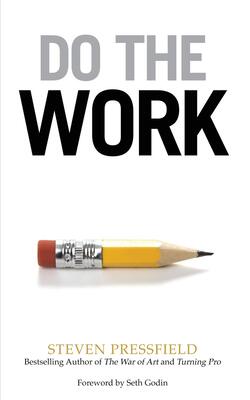
This is short (2 hours) motivational book. It’s written in an engaging style. The main idea if you want results you should do the work.
The author encourages to distance yourself from your own bad habits and lack of discipline. I think that’s an interesting idea which might yield better results.
This book feels like more like a summary essay of the author’s previous book "The War of Art". I haven’t read it yet, but even the foreword makes it very clear.
Below are my highlights.
The Four
by Scott Galloway
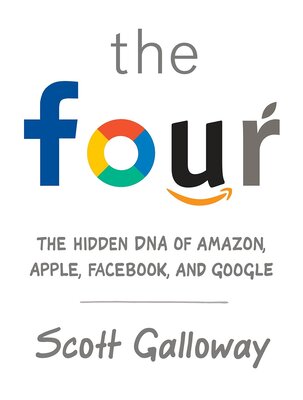
The book includes the short analysis of Amazon, Apple, Facebook, and Google along with future prediction. It was an interesting listen but I didn’t make any notes.
Хулиномика
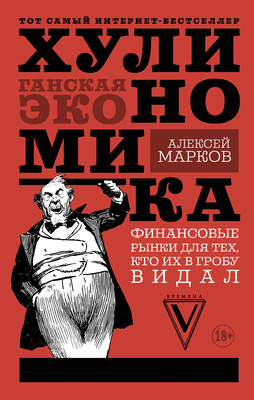
This book gives a good introduction to ecomony basics. It quickly touches on a lot of concepts so don’t expect to get a good introduction. The author prioritises cool slang over explanation simplicity. This book is very entertaining indeed, but having the basic knowledge myself I found it had to follow.